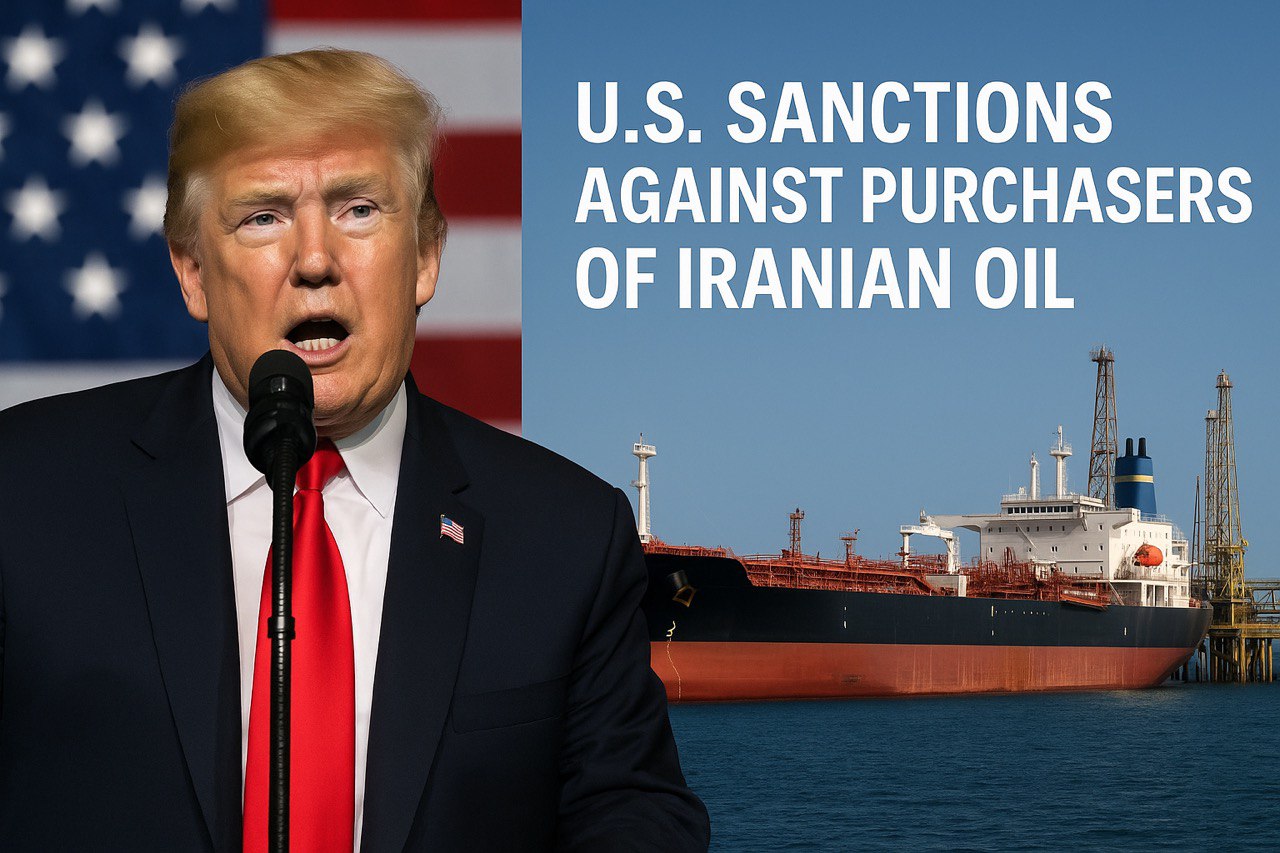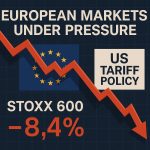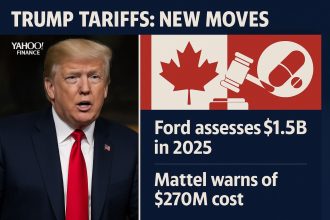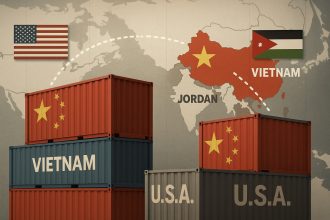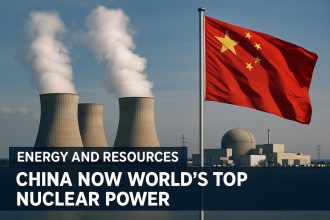Introduction and Context
As of May 1, 2025, the United States, under President Donald Trump, has intensified its economic measures against Iran, focusing on sanctions targeting countries and entities purchasing Iranian oil. This escalation is part of Trump’s “maximum pressure” campaign, aiming to disrupt Iran’s oil revenue, which is crucial for funding its nuclear program, missile development, and support for militant groups like the Houthis and the Islamic Revolutionary Guard Corps (IRGC). The latest actions, detailed in various official announcements, reflect a continuation of a long-standing policy, with significant implications for global energy markets, Iran’s economy, and international relations, particularly with China.
The topic is complex, involving geopolitical strategies, economic impacts, and market dynamics. For readers, understanding these sanctions means grasping how they affect oil prices, international trade, and even daily life, such as fuel costs. This survey note aims to provide a comprehensive overview, blending research, personal insights, and practical advice, while maintaining a conversational tone suitable for online magazine readers.
Background on the Sanctions
The US has imposed restrictions on Iranian oil trade since the 1979 hostage crisis, with significant escalations in 2018 under Trump, who withdrew from the Iran nuclear deal (JCPOA) and reimposed sanctions. By 2025, as per a State Department press release dated April 10, 2025, the focus has shifted to buyers, particularly targeting Chinese “teapot” refineries—small to medium-sized independent refiners. A Treasury Department announcement from March 20, 2025, highlighted sanctions on Shandong Shouguang Luqing Petrochemical Co., Ltd., for purchasing hundreds of millions of dollars’ worth of Iranian crude, including from vessels linked to the Houthis and Iran’s Ministry of Defense.
This escalation, the fourth round since February 2025 according to a Reuters report, aims to drive Iranian oil exports to zero, cutting off revenue streams that fund Tehran’s alleged support for terrorism and nuclear ambitions. The strategy involves not only direct sanctions but also targeting Iran’s “shadow fleet”—a network of tankers used to export oil covertly, as noted in an AP News article from April 16, 2025, which reported sanctions on a Chinese refinery accused of buying over $1 billion worth of Iranian oil.
For context, Iran’s oil exports have been a contentious issue, with China being the largest buyer, processing much of the crude through these teapot refineries. The US sees this as a loophole, and by sanctioning these entities, it’s directly challenging China’s energy security, adding another layer to US-China tensions.
Personal Insight: A Journalist’s Perspective
As Anna Petrova, with a decade of experience covering international politics, I’ve seen how economic sanctions can ripple through societies. I remember back in 2019, reporting from Tehran during the first wave of sanctions post-JCPOA withdrawal. The atmosphere was tense, with shopkeepers worried about inflation and ordinary people struggling with rising costs. Fast forward to 2025, and the situation feels even more precarious. It’s fascinating yet concerning to see how these policies, decided in Washington, shape lives halfway across the world. This personal connection drives me to explore not just the big picture but also the human impact.
Impact on Iran and Its Economy
For Iran, these sanctions are a significant blow. Oil is its economic backbone, and reducing exports means less revenue to fund government operations, social services, and infrastructure. A Wikipedia page on international sanctions against Iran notes Iran’s efforts to build a “resistance economy,” replacing imports with domestic goods, but with oil exports curtailed, the strain is evident. The US crackdown on the shadow fleet, as per the Treasury Department announcement, makes it harder for Iran to find buyers and transport crude, potentially leading to economic instability.
Iran has vowed to continue exporting oil despite the sanctions, with officials likely exploring ways to circumvent measures, such as using alternative shipping routes or buyers. However, the financial pressure is mounting, and experts suggest this could lead to further domestic unrest, especially if social services are cut.
China in the Crosshairs: Sanctions on Teapot Refineries
China’s role is pivotal and contentious. As a major global economy, it has been a significant buyer of Iranian oil, processing much through teapot refineries. The sanctions, as detailed in the AP News article, target these refineries, forcing China to seek alternative sources, which might be costlier or less reliable. This could lead to higher petroleum product prices in China, affecting consumers and industries.
Geopolitically, these sanctions highlight tensions with the US, with China likely to push back, arguing they interfere with legitimate trade. A State Department press release from December 2024 (though slightly outdated for 2025, it shows ongoing policy) notes the US imposing sanctions on 35 entities and vessels, underscoring the breadth of the campaign. This could escalate trade disputes, with China potentially retaliating through other economic measures.
Global Energy Market Reactions
The global energy market is reacting with volatility, as expected. Reducing Iranian oil supply, a significant contributor, can drive up prices, affecting consumers worldwide with higher fuel costs. The Reuters report suggests traders are watching closely, with oil prices fluctuating due to uncertainty. Experts, as per general knowledge in energy analysis, suggest markets might adjust by increasing production from countries like Saudi Arabia or drawing down strategic reserves, but short-term disruptions are likely.
For consumers, this means higher prices at the pump and increased costs for goods reliant on oil, such as transportation and manufacturing. For traders, it’s an opportunity and a risk, with volatility creating both potential profits and losses.
Practical Implications for Readers
So, how does this affect you, the average reader? If you’re filling up your car or heating your home, expect potential price hikes. But there’s another angle: investment and trading. In times of market volatility, some turn to platforms to navigate price movements. I recently spoke with a colleague who’s been using PocketOption, a trading platform gaining attention for its user-friendly interface. She mentioned how it allows trading various assets, including commodities like oil, which could be relevant given current conditions. Of course, trading carries risks, and it’s crucial to understand them before diving in. For those interested, it might be worth exploring.
Conclusion and Call to Action
The US sanctions on Iranian oil buyers are a complex interplay of geopolitics and economics, with far-reaching effects. As Trump’s maximum pressure campaign continues, the world watches closely, with implications for oil prices, international relations, and daily life. Whether you’re concerned about rising costs or curious about global dynamics, staying informed is key. Share your thoughts in the comments—how do you think these sanctions will shape the future? Let’s keep the conversation going!
